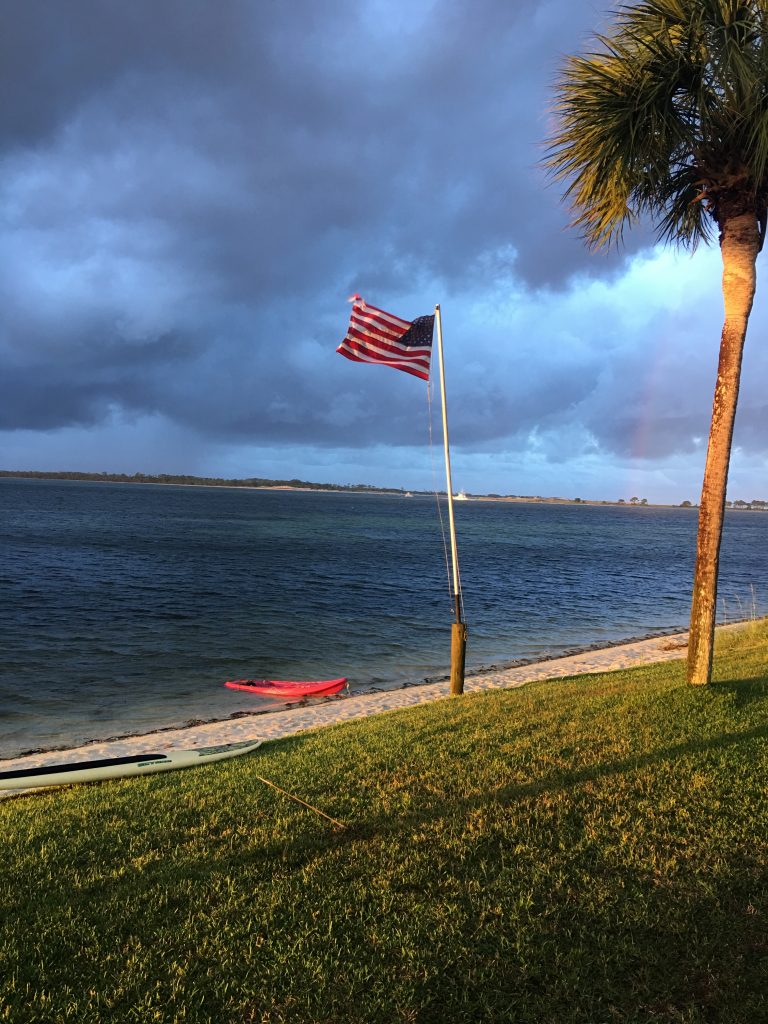 For quite some time, courts across the country have expressly disfavored the use of non-compete agreements (“NCA”s). On June 5, 2015, the Louisiana First Circuit Court of Appeal ruled consistently with this sentiment. The court ruled against a company attempting to attain injunctive relief and damages against one of its employees for an alleged violation of an employment agreement.
For quite some time, courts across the country have expressly disfavored the use of non-compete agreements (“NCA”s). On June 5, 2015, the Louisiana First Circuit Court of Appeal ruled consistently with this sentiment. The court ruled against a company attempting to attain injunctive relief and damages against one of its employees for an alleged violation of an employment agreement.
On August 4, 2008, an employment agreement was signed between a sand and gravel company, Southern Aggregates, LLC (“Southern”), and an employee, Marcus D. Dyess. The contract contained, among other provisions, a non-compete agreement. The NCA, of course, functioned to prevent Dyess from leasing land to other companies/entities for mining purposes (in competition against Southern). Further, the NCA was subject to two limitations: (1) it would run for two years and (2) it would be specific to a geographical area of eighteen listed parishes in Louisiana. In addition to the NCA, the contract included a right of first refusal (“RFR”) to prevent Dyess from entering into business with another party without first making an offer to Southern. The RFR had the same geographical limitations as the NCA, in addition to a five-yeaar term.
Following the execution of the agreement, on February 8, 2010, Dyess left his employment with Southern. At around this point, Southern filed a petition in the court alleging violation of the employment agreement between it and Dyess. Southern alleged that Dyess wrongfully leased property for mining purposes in one of the areas limited by the agreement. In reaction to this lawsuit Dyess filed a perepmtory exception of no cause action. In this filing Dyess claimed that the right of first refusal was null and void pursuant to Louisiana Revised Statute 23:921. 23:921 statute says all contracts that restrain a person from competing are null and void unless one of the exceptions applies. Dyess further argued that none of the exceptions within that statute applied to the contract in dispute. The trial court agreed with Dyess and an appeal followed.
 Louisiana Personal Injury Lawyer Blog
Louisiana Personal Injury Lawyer Blog



 Car accidents can be an alarming ordeal. Especially, where there has been a fatality involved. Generally, when a vehicle has been physically involved in an accident, the driver can expect to have some liability. However, liability can also be involved where a driver requires a passenger to exit a vehicle, and the passenger is subsequently struck and killed by an unknown driver, hours later.
Car accidents can be an alarming ordeal. Especially, where there has been a fatality involved. Generally, when a vehicle has been physically involved in an accident, the driver can expect to have some liability. However, liability can also be involved where a driver requires a passenger to exit a vehicle, and the passenger is subsequently struck and killed by an unknown driver, hours later. Louisiana worker’s compensation laws allow for injuries to only be charged at the usual cost for treatment. When a worker suffers an injury on the job the amount a hospital receives to pay for treatment may not always cover the cost of the treatment, but the hospital may not be able to recover for these losses.
Louisiana worker’s compensation laws allow for injuries to only be charged at the usual cost for treatment. When a worker suffers an injury on the job the amount a hospital receives to pay for treatment may not always cover the cost of the treatment, but the hospital may not be able to recover for these losses. If your hurt on the job your recourse will typically be through the workers compensation system. Once you are in that system you must play by the rules and follow all orders of the court. If you don’t your employer does have recourse to seek to limit your benefits. Such a situation is demonstrated below wherein Mr. Sims refusal to attend adult education lead to a lesson learned in reduction of workers compensation benefits 101.
If your hurt on the job your recourse will typically be through the workers compensation system. Once you are in that system you must play by the rules and follow all orders of the court. If you don’t your employer does have recourse to seek to limit your benefits. Such a situation is demonstrated below wherein Mr. Sims refusal to attend adult education lead to a lesson learned in reduction of workers compensation benefits 101. In 1997, Brandon Hirstius purchased a tract of land in St Tammany Parish. Nearly 14 years later, in 2011, Mr. Hirstius complained of an unauthorized utility pole on his property belonging to BellSouth Telecommunications, Inc. and filed a trespass lawsuit against the telecommunications company. In the midst of the June 2012 trial, Mr. Hirstius discovered the Renaissance Media, LLC, owned aerial wires attached to the utility pole in question.
In 1997, Brandon Hirstius purchased a tract of land in St Tammany Parish. Nearly 14 years later, in 2011, Mr. Hirstius complained of an unauthorized utility pole on his property belonging to BellSouth Telecommunications, Inc. and filed a trespass lawsuit against the telecommunications company. In the midst of the June 2012 trial, Mr. Hirstius discovered the Renaissance Media, LLC, owned aerial wires attached to the utility pole in question. If you are fortunate enough not to sustain serious injury as a result of someone else’s negligent actions, you may not realize that the compensation for your injuries can be apportioned and spread to other liable parties. Further still, if you were partially responsible for causing your own injury, you will likely see a reduction in the amount of damages you can recover. This was the case for a Ponchatoula High School band student who was injured while on a school-sponsored band trip in Tennessee.
If you are fortunate enough not to sustain serious injury as a result of someone else’s negligent actions, you may not realize that the compensation for your injuries can be apportioned and spread to other liable parties. Further still, if you were partially responsible for causing your own injury, you will likely see a reduction in the amount of damages you can recover. This was the case for a Ponchatoula High School band student who was injured while on a school-sponsored band trip in Tennessee. Louisiana is a “Direct Action State” which means that an injured party has the option to sue an insurer for coverage under someone else’s policy. See La. Rev. Stat.
Louisiana is a “Direct Action State” which means that an injured party has the option to sue an insurer for coverage under someone else’s policy. See La. Rev. Stat.  Arbitration agreements are becoming more and more prevalent in modern business dealings. In theory, arbitration provides a means to quickly, quietly, and fairly remedy disputes between parties, especially when the dispute pertains to a niche field or complex issue. However, as a developing legal remedy, arbitration can still create unexpected outcomes for the parties involved. One such arbitration proceeding, regarding an owner/operator relationship at the Lake Salvador field in Jefferson and St. Charles Parishes, resulted in an award in excess of the original submission of audited damages.
Arbitration agreements are becoming more and more prevalent in modern business dealings. In theory, arbitration provides a means to quickly, quietly, and fairly remedy disputes between parties, especially when the dispute pertains to a niche field or complex issue. However, as a developing legal remedy, arbitration can still create unexpected outcomes for the parties involved. One such arbitration proceeding, regarding an owner/operator relationship at the Lake Salvador field in Jefferson and St. Charles Parishes, resulted in an award in excess of the original submission of audited damages. Love gone bad, broken promises and loans not written down come to a head in the following case in Jefferson Parish. In the case at hand, Mr. Palmisano and Ms. Nauman-Anderson had been romantically engaged for several months, during which time Mr. Palmisano allegedly credited Ms. Nauman-Anderson with nearly $26,000 dollars in loans. These loans were allegedly subject to an oral agreement at the time that they were advanced and no effort was made to memorialize the loans (put them in writing) until the romantic relationship between the parties had ended. Upon severing romantic ties, Mr. Palmisano provided Ms. Nauman-Anderson with a promissory note in order to commemorate their alleged agreement but Ms. Nauman-Anderson refused to sign the note, claiming that the loans were in fact gifts. In response, Mr. Palmisano brought suit for a breach of contract.
Love gone bad, broken promises and loans not written down come to a head in the following case in Jefferson Parish. In the case at hand, Mr. Palmisano and Ms. Nauman-Anderson had been romantically engaged for several months, during which time Mr. Palmisano allegedly credited Ms. Nauman-Anderson with nearly $26,000 dollars in loans. These loans were allegedly subject to an oral agreement at the time that they were advanced and no effort was made to memorialize the loans (put them in writing) until the romantic relationship between the parties had ended. Upon severing romantic ties, Mr. Palmisano provided Ms. Nauman-Anderson with a promissory note in order to commemorate their alleged agreement but Ms. Nauman-Anderson refused to sign the note, claiming that the loans were in fact gifts. In response, Mr. Palmisano brought suit for a breach of contract.